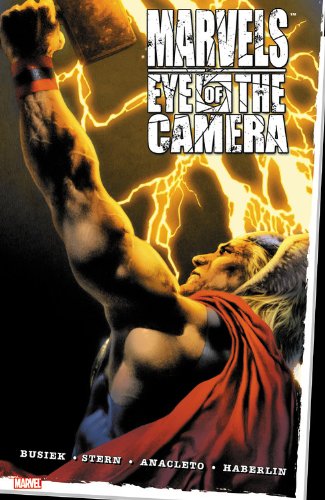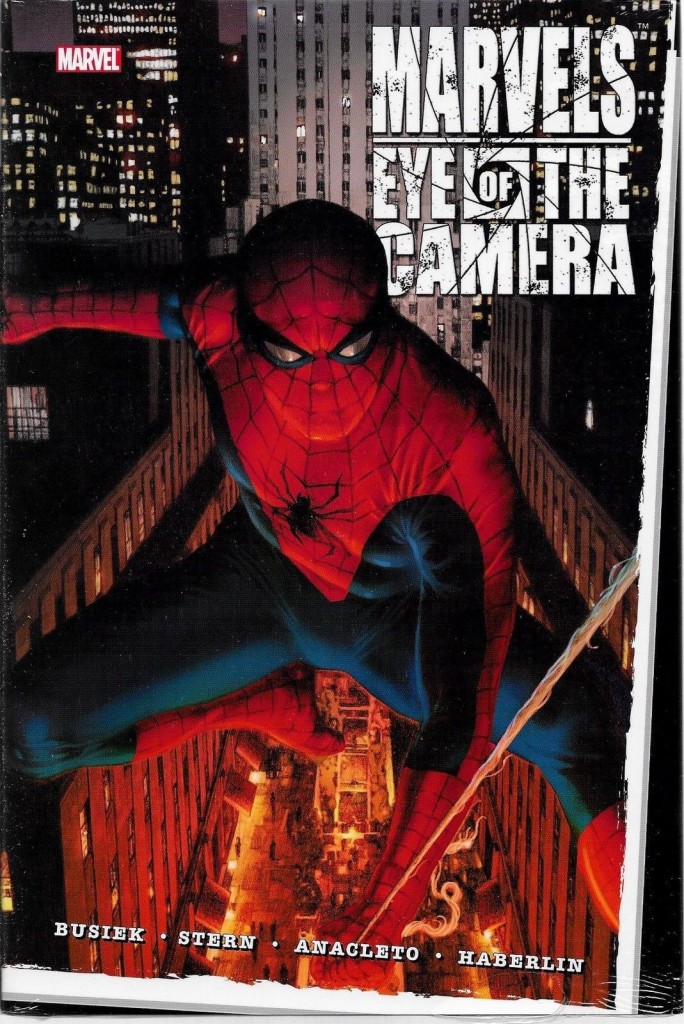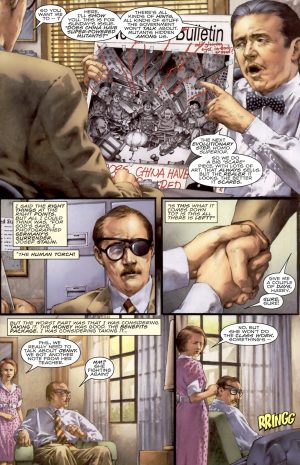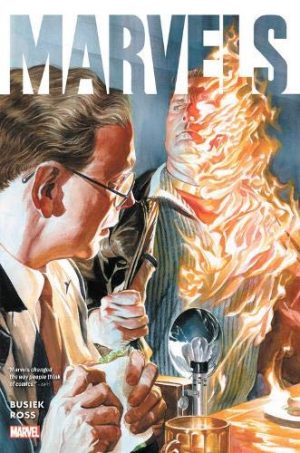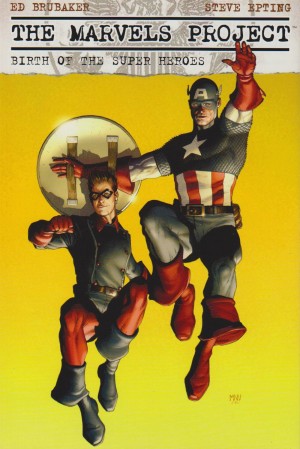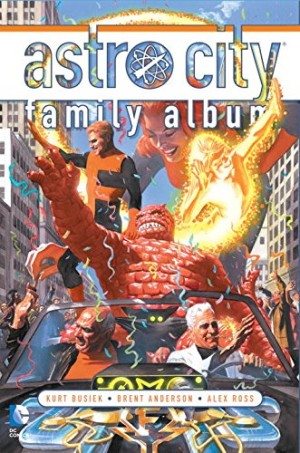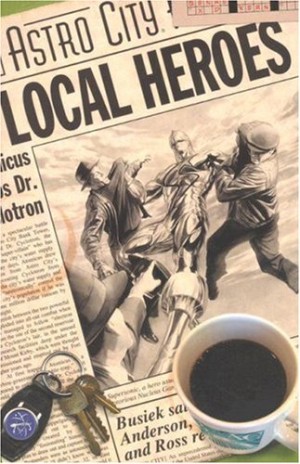Review by Karl Verhoven
To Kurt Busiek’s credit, while there must have been pressure to follow-up the immensely successful Marvels, he resisted for over a decade. The original story compacted pivotal events from Marvel’s history, made its points, and remains a compelling view of superheroes as they’d be seen in a ‘real’ world. Disappointingly, though, Eye of the Camera, while not bad, never approaches the quality of its illustrious forebear.
The first problem is the art. With Alex Ross either unavailable or unwilling, in principle at least Jay Anacleto was an appropriate alternative. He has a similar photo-realistic style, but his figures have a very posed and static quality. Furthermore whereas Ross accentuated the grandeur of superheroes via his viewpoints, it’s as if Anacleto’s under instruction to render them mundane and cluttered to reflect the uncertainty of the narrative. There’s not a single iconic image in this book to compare with those supplied in Marvels, and that rather undermines the purpose.
Newspaper photographer Phil Sheldon is again the focus. Ostensibly at a career peak delivering front page material, he’s unsettled, and searching for something more when diagnosed with cancer and a limit delivered for his lifespan. He’s a man seemingly out of place in the 1970s, highlighted by Anacleto portraying him in a brown suit when colour has filtered into the attire of those surrounding him. His values also reflect a passing era, and when it’s suggested a proposed new collection of his photographs should accentuate the horror and danger of super-powered beings, he’s reluctant.
An incident that shapes Sheldon and the book is taken from an old Spider-Man comic. An assassin chooses to drop from the Statue of Liberty rather than be captured or shot. Spider-Man makes no attempt to save him. Do darker times impinge on heroic stature? By the time the narrative reaches the 1980s Roger Stern is co-writing, and he may be partially responsible for a creditable finale that hardly redeems the remainder, but at least ends the story in memorable and emotional fashion.
This isn’t a poor book, just an ordinary one that fails to meet expectations in which the fine moments are small. There’s a ironic chapter conclusion when Sheldon decides his new book will show people superheroes shouldn’t scare them, the captions laid over an illustration of the Punisher prowling a rooftop at night. He tears a strip off a smug interviewer “Are you seriously saying you can’t tell the difference between some flame-headed erzatz Blazing Skull and Captain America or Spider-Man?”
Those reading this without having read Marvels may find the approach novel, but it’s likely they’ve read enough material taking its cue from Marvels that this won’t be the case. It’s a text book example illustrating Thomas Wolfe’s phrase “You can’t go home again”.
